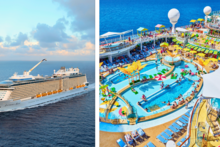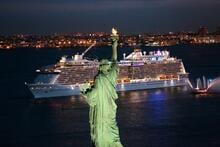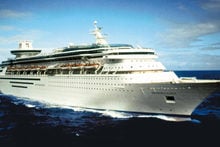Cruise ships are regularly inspected to ensure they are maintaining a healthy and safe environment, with five Royal Caribbean ships getting a perfect score.
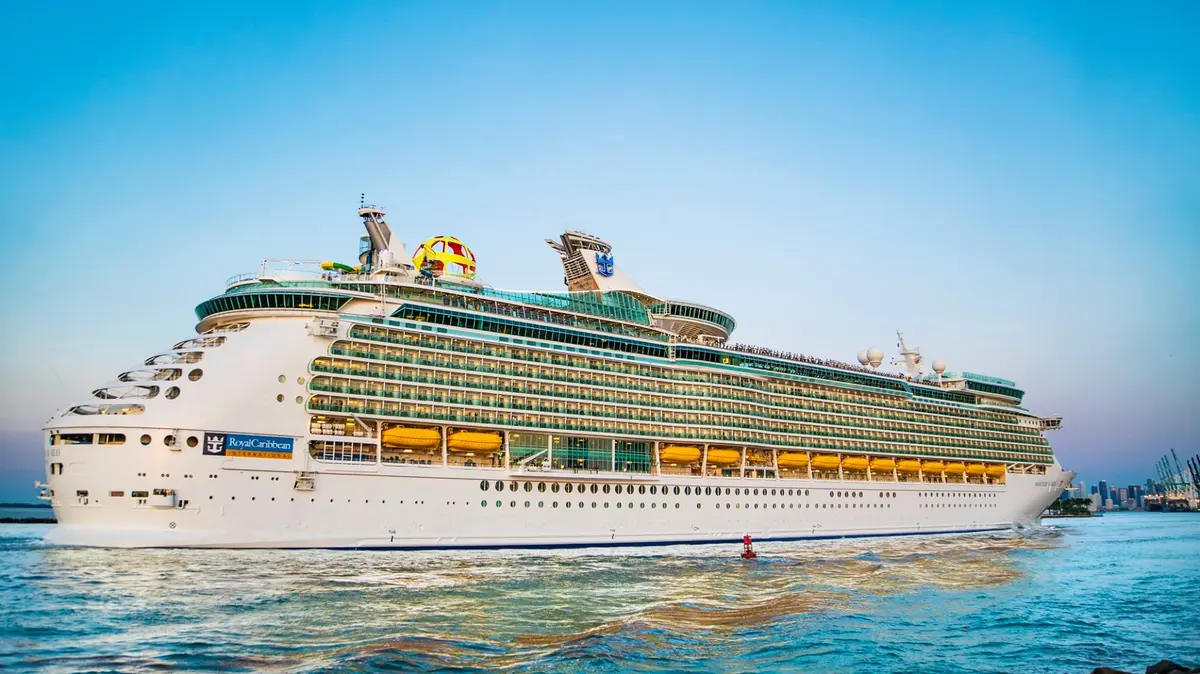
The United States Center for Disease Control and Prevention (CDC) conducts random inspections of cruise ships and shares their findings with the public.
The purpose is to ensure cruise lines meet the standards expected of them and to mitigate the chances someone would get sick on a ship, somewhat similar to how restaurants and supermarkets are inspected.
Traveling on cruise ships exposes guests to new environments, communal spaces, and high volumes of other people, all of which can exacerbate the risk of illness.

The CDC's Vessel Sanitation Program (VSP) gives each cruise ship a rating on a scale of 0-100 once the inspection is complete.
As 2024 comes to a close, the CDC revealed 27 cruise ships got a perfect sanitation score.
In 2024, the CDC conducted a total of 151 inspections and most scored a 95 or better. Of those, 29 were Royal Caribbean ships.
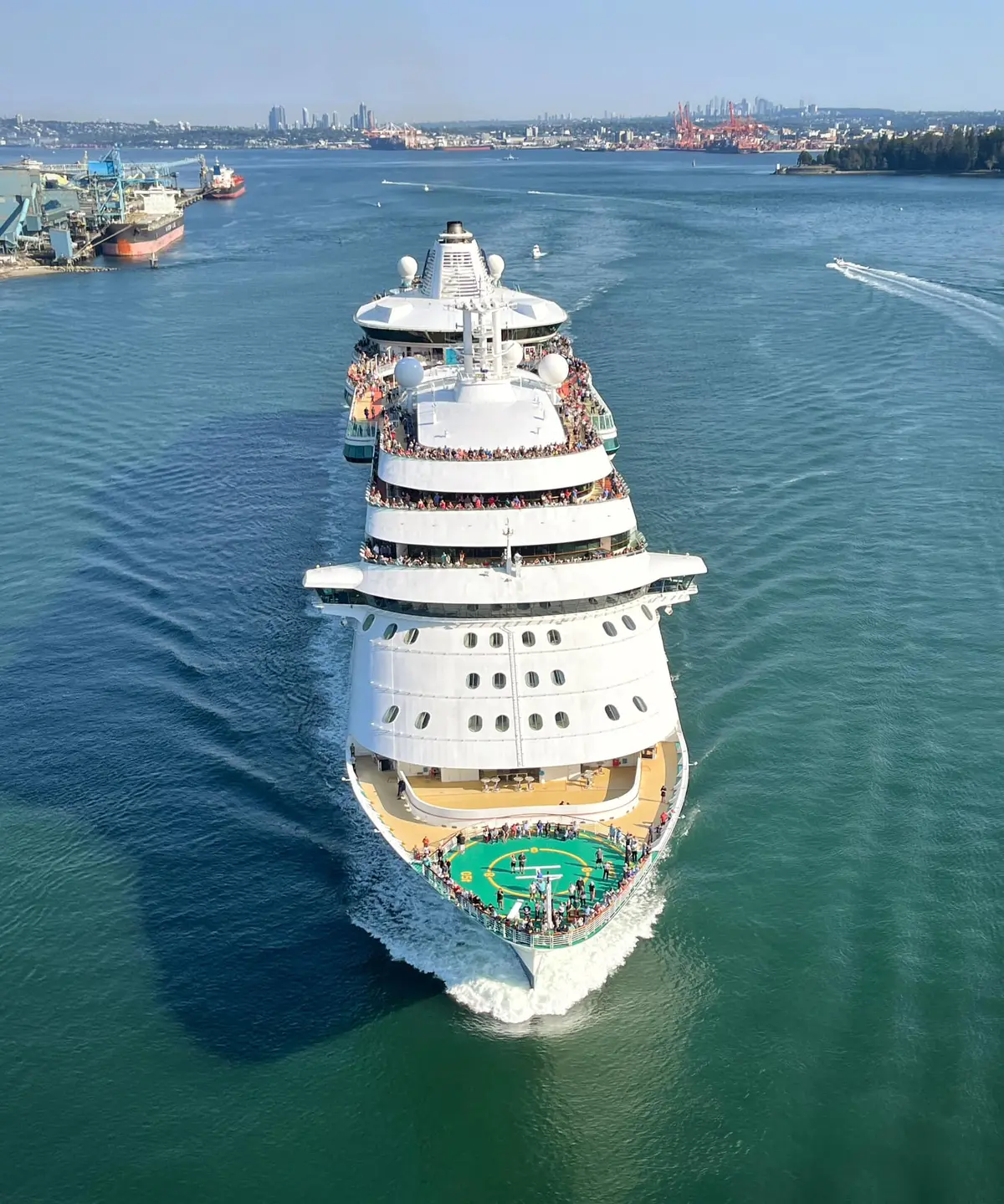
Five Royal Caribbean ships earned a perfect score this year:
- Mariner of the Seas: Inspected 10/28/2024
- Jewel of the Seas: Inspected 9/28/2024
- Serenade of the Seas: Inspected 9/10/2024
- Radiance of the Seas: Inspected 7/21/2024
- Brilliance of the Seas: Inspected 5/16/2024
Interestingly enough, this list is comprised of the entire Radiance Class of ships, with just Mariner of the Seas being a Voyager Class ship.
What were the scores for the other Royal Caribbean ships?
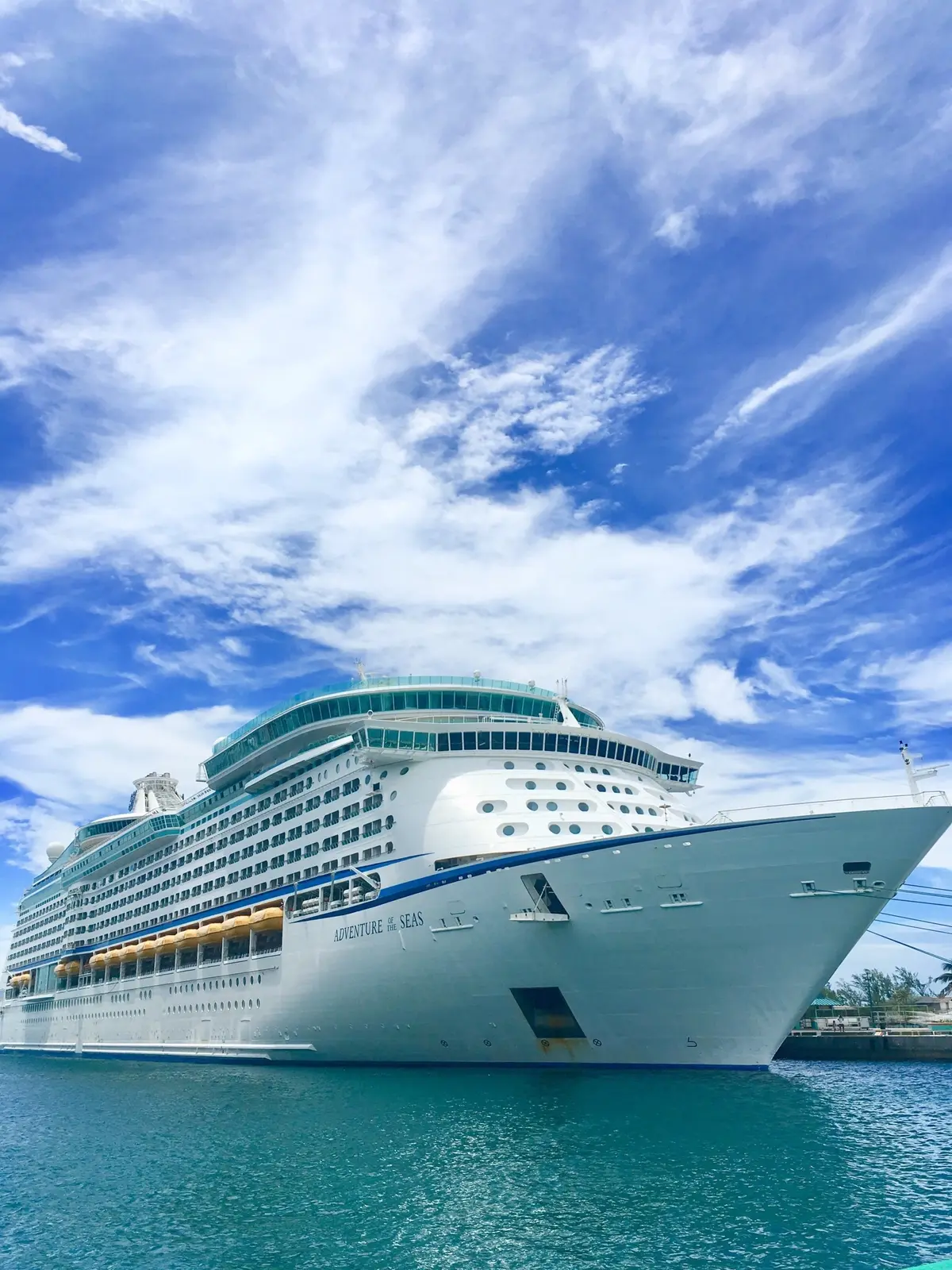
There's a good chance you're wondering how the rest of the fleet did, besides these five perfect scores.
The good news is every Royal Caribbean ship passed (a score of 85 or lower is unsatisfactory), with Adventure of the Seas coming in with the lowest score of 89.
| Cruise Ship | Date | Score |
| Adventure of the Seas | 1/23/2024 | 89 |
| Allure of the Seas | 1/26/2024 | 99 |
| Anthem of the Seas | 3/3/2024 | 98 |
| Brilliance of the Seas | 5/16/2024 | 100 |
| Enchantment of the Seas | 2/17/2024 | 98 |
| Explorer of the Seas | 4/28/2024 | 96 |
| Grandeur of the Seas | 3/18/2024 | 98 |
| Harmony of the Seas | 10/27/2024 | 95 |
| Harmony of the Seas | 2/4/2024 | 92 |
| Icon of the Seas | 4/20/2024 | 97 |
| Independence of the Seas | 10/14/2024 | 97 |
| Independence of the Seas | 5/1/2024 | 91 |
| Jewel of the Seas | 9/28/2024 | 100 |
| Jewel of the Seas | 4/5/2024 | 97 |
| Liberty of the Seas | 3/8/2024 | 97 |
| Mariner of the Seas | 10/28/2024 | 100 |
| Mariner of the Seas | 1/29/2024 | 97 |
| Navigator of the Seas | 7/29/2024 | 96 |
| Oasis of the Seas | 3/17/2024 | 94 |
| Odyssey of the Seas | 3/30/2024 | 99 |
| Ovation of the Seas | 8/16/2024 | 96 |
| Quantum of the Seas | 6/24/2024 | 99 |
| Radiance of the Seas | 7/21/2024 | 100 |
| Radiance of the Seas | 3/28/2024 | 98 |
| Rhapsody of the Seas | 5/12/2024 | 94 |
| Serenade of the Seas | 9/10/2024 | 100 |
| Utopia of the Seas | 8/19/2024 | 94 |
| Vision of the Seas | 7/20/2024 | 97 |
| Wonder Of The Seas | 4/17/2024 | 99 |
You should also be aware that after each inspection, crew members respond to the results and offer corrective actions to remedy the issues inspectors found.
The end result is a cleaner cruise ship.
Inspection scores don't tell the whole story
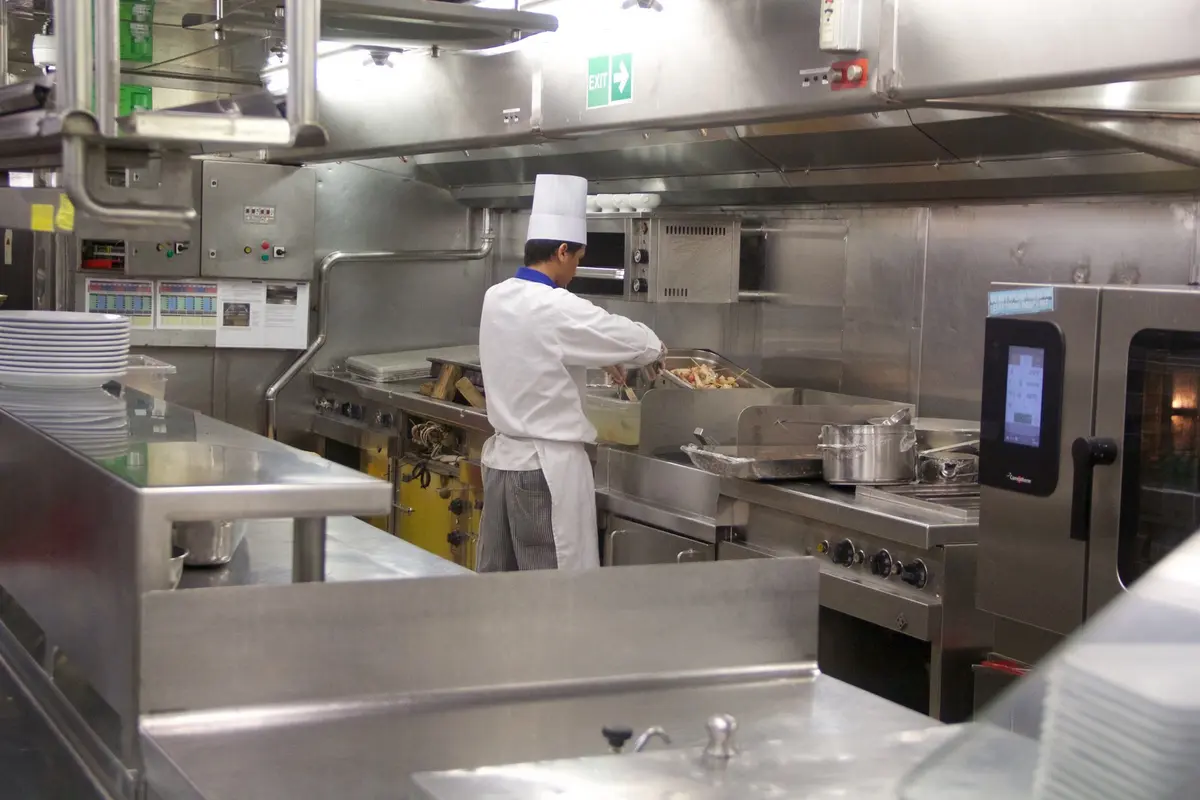
Remember, non-perfect scores don't mean an unhealthy or unsafe ship.
The CDC's inspections and VSP scores are important, but not the only factor in ensuring a cruise ship is clean.
Cruise ships are also mindful of the impact that bad news and excessive press about sickness can have. Royal Caribbean wants its guests to be healthy and enjoy their cruise enough to sail again.
Every vessel, no matter its VSP score, features several health awareness tactics and oversight of outbreak prevention.
Guests on Royal Caribbean ships will spot hand-washing stations, free hand sanitizer, health awareness signs, and even crew members reminding guests to clean their hands.
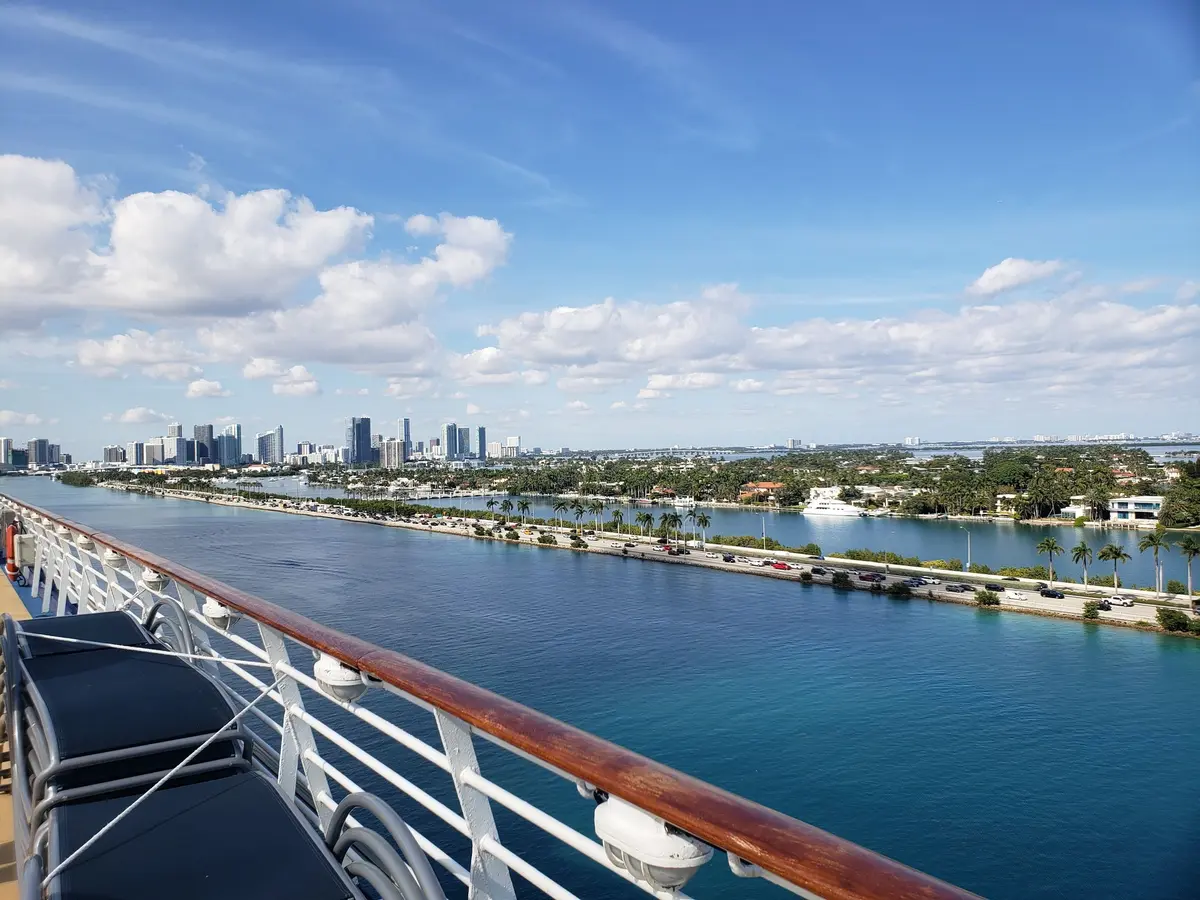
If guests do fall sick, Royal Caribbean has a series of health protocols to prevent further infection, no matter the source.
This program, implemented in 2023, includes six tenants:
- Stop buffet self-service if the onboard norovirus rate exceeds 1.5%
- More crew training on acute GI symptoms and avoiding cross-contamination
- More GI training for onboard medical teams
- Increased oversight of the Outbreak Prevention Plan
- Switching to PDI SaniCloth Prime hospital-grade disinfectant wipes, which carry a claim against norovirus (Contains an affiliate link, which costs you nothing extra to use)
- Contactless tap technology, so crew members don't have to handle SeaPass cards


